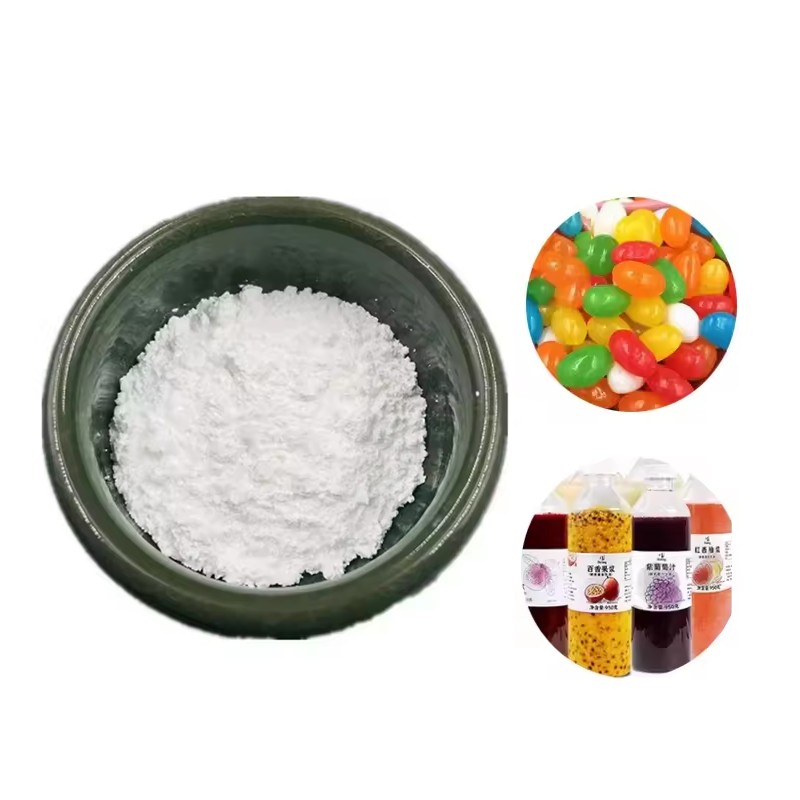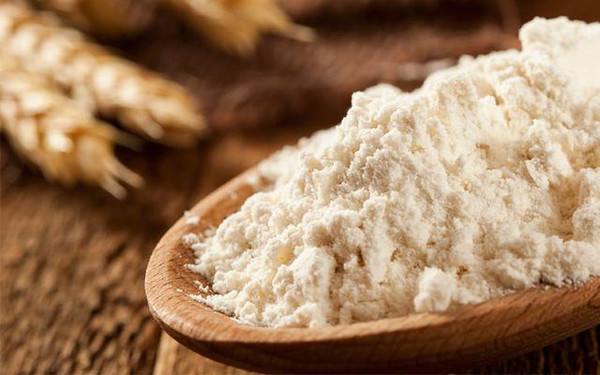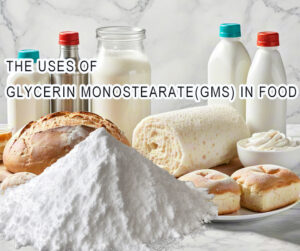Food Grade Xanthan Gum - Πάρτε σας για να μάθετε για το Xanthan Gum
The origin of xanthan gum
Xanthan gum, also known as Hansheng gum, was discovered in the laboratory of the US Department of Agriculture. In a project to test the potential use of a variety of polymers, the substance was discovered. Since then, xanthan gum has been extensively studied and it has been determined that xanthan gum is safe. Therefore, in 1969, xanthan gum was used in the United States. The FDA approves food additives as a US market and there is no limit to the amount of xanthan gum contained in the food. Xanthan gum is a kind of microbial polysaccharide produced by the Xanthomonas campestris by fermentation of carbohydrates. Xanthan gum has many uses. According to these applications, xanthan gum is divided into many grades, according to xanthan gum. Purity can be divided into industrial grade, food grade, reagent grade. Today I mainly introduce the application and scene of food-grade xanthan gum.
What are the disadvantages of eating food grade xanthan gum?
Food-grade xanthan gum can know that it is edible when we hear the name. The FDA has no restrictions on the amount of xanthan gum when it is approved as a food additive. We can think that it has no fundamental disadvantages to the body. Human body research concluded that the only negative effect of xanthan gum seems to be only stomach discomfort. Large doses of xanthan gum increase the frequency of feces, increase the number of bowel movements and change the advocacy of bacteria. This seems to be a good thing, causing the stomach. The reason for the discomfort is that it is only possible to consume at least 15 grams, and these will hardly occur in daily life.
Benefits of eating food grade xanthan gum
In contrast, the benefits of food-grade xanthan gum seem to be too much. Some studies have found that xanthan gum can lower blood sugar after eating a lot. When it enters the body, it will slow down the digestion of the body and affect the sugar into the blood. The speed of the blood sugar peak after eating. Xanthan gum also has some potential benefits, including lowering cholesterol, increasing satiety when eating, losing weight, studying anti-cancer properties, improving bowel movements, increasing dietary regularity, and adding viscous liquids and chewing gum to people with swallowing disorders. The main materials and so on, of course, other roles are still under study.
Application of food-grade xanthan gum
Xanthan gum is a kind of microbial polysaccharide. The polysaccharide improves the food quality, taste, appearance quality, and application direction by controlling the rheological behavior of the product, and improves the food value and commercial value of the food. It has been used as an important additive in the fields of beverages, cakes, jellies, canned foods, seafood, meat processing, etc., and has great applications in suspensions, emulsifiers, thickeners, binders, and the like. Below are some applications of food-grade xanthan gum under some excellent characteristics.
Xanthan gum is used as a thickening stabilizer in various beverage seasoning foods. Because the stability effect of xanthan gum is better than other glues, and it has thermal stability, general high-temperature sterilization can not do more for xanthan gum. The effect can be used for a variety of juice drinks, vegetable protein drinks, and milk proteins. Xanthan gum can also be used as an emulsifier in various protein beverages and milk beverages to improve protein stability and prevent protein precipitation. Xanthan gum can be used as a filler in various puffed foods such as snack bread. Food grade xanthan gum can fully maintain the shape and stability of food without changing the quality of the food itself so that the food has a longer shelf life. And the better taste, xanthan gum as an emulsion stabilizer is commonly used in ice cream, can prevent ice cream from appearing hail and keep the ice cream at a higher temperature than the separation of the slurry, in the application of surface products in the original Gum can enhance the elasticity of the dough. It is also a favorite of gluten-free people in baking. It can be used as a substitute for wheat and other cereals. It is used to make gluten-free bread. In addition to the above purposes, xanthan gum is still processed in food. Aspects play an important role in seafood and meat products.
Other applications of xanthan gum
Food grade xanthan gum is also often used in beauty products. It will prevent the separation of some emulsion products. Because of its moisture retention, it can also play a role in lubricating and moisturizing. Other smooth and delicate emulsion products are generally used. Xanthan gum, but it should be noted that xanthan gum is mostly made from some corn-derived feeding bacteria, so users who are allergic to corn allergy and other related raw materials should use these with xanthan gum product.
The amount and effect of different products of xanthan gum
| Use product | usage (%) | utility |
| Fruit juice drink | 0.1-0.3 | thickening suspension, smooth taste, natural flavor |
| Ice cream | 0.1-0.3 | microporous, no ice, shorten the aging time, make the product organization delicate |
| Soy sauce, oyster sauce | 0.05-0.1 | Good salt tolerance increased consistency, suitable for making a sauce, enhancing wall hanging and adhesion |
| Frozen confections | 0.1-0.2 | combined with water, consistency and fineness, anti-dehydration |
| Baked goods | 0.5-1.5 | Fruit filling, suitable for all kinds of fillings |
| Gel | 0.5-1.5 | Confectionary Gel, Seasoning, Jelly Forming |
| Soft drink to | 0.01-0.3 | suspending agent, foaming agent, no delamination, thickening |
| Salad seasoning | 0.1-0.3 | Conducive to molding, prevent water precipitation |
| Instant noodles | 0.2-0.3 | Enhances toughness, improves chewing, saves fuel, and maintains moisture |
| Sausage | 0.2-0.3 | Improves enema, maintains moisture and oiliness |
| Canned meat | 0.1-0.2 | Convenient for seasoning and freezing of soup |
| Cheese | 0.2-0.5 | Accelerates pores, prevents the syneresis |
| Cake | 0.1-0.3 | Increases micropores, softness, and extended shelf life |
| Bread | 0.1-0.2 | Soft, ideal for brown bread with coarse fiber |
| Dehydrated food | 0.2-0.4 | speeds up recovery and maintains color and taste |
| Medicine, make-up | 0.2-1.0 | Styling agent, suspending agent, moisturizer, thickening, adhesion, lubrication |
| Toothpaste | 0.4-0.6 | Easy to make toothpaste paste, improve toothpaste brushing performance, good dispersibility, smooth mouthfeel |
| Canned pets | 0.1-0.3 | make the minced meat easy to solidify |
| Fish and shrimp feed | 0.5-2.0 | binder, used for fish and shrimp seedling feed, fish medicine |
| Cut tobacco | 0.1-0.3 | Prevents tobacco breakage, tobacco flavor emulsification and moisturizing adhesive, suitable for tobacco sheets |
| Another food industry | 1.0-2.0 | has good toughness and luster, no break, no skin |
To find out the specific specifications of xanthan gum, please click here.












